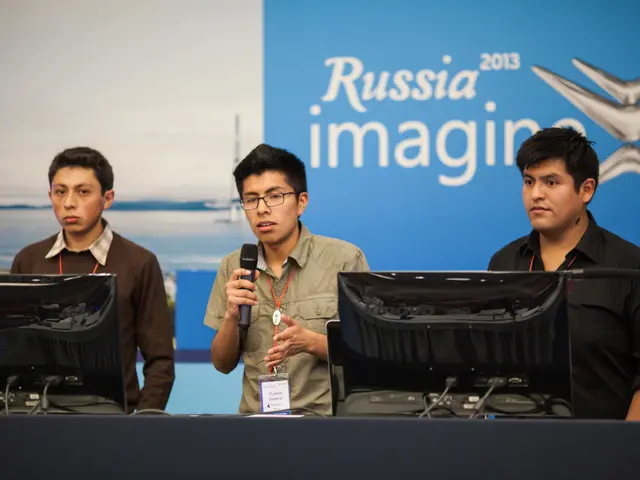CMA CGM Advocates Blockchain Connectivity for Digital Bill of Lading Adoption
The CMA CGM Group, a leading player in the global container shipping industry, has announced a significant step towards digitalizing and streamlining the container trade ecosystem. Through a collaboration with technology partners CargoX, eTEU, ICE, SGTraDex, and Singapore's Infocomm Media Development Authority (IMDA), the Group aims to transition all of its original bills of lading to electronic format by the year 2030.
Under a formal Memorandum of Understanding, the consortium will leverage blockchain technology to promote the interoperability of electronic bills of lading (eBL) via the TradeTrust framework. The collaboration aims to enable seamless, secure, and legally compliant data exchange across different eBL platforms.
Key Progress and Current Status
The partnership has established a joint working group, including the technology partners and IMDA, to lead technical evaluations and oversee trial phases for interoperability testing. The primary objectives of the collaboration are centered around three key pillars: technical, legal, and commercial viability of implementing TradeTrust-enabled interoperability between multiple eBL systems.
The consortium is focusing on assessing the technical, legal, and commercial feasibility of TradeTrust-enabled interoperability between multiple eBL systems. Plans are underway to develop and execute pilot projects to test and validate this interoperability model, aligning with global legal and technological standards such as the UNCITRAL Model Law on Electronic Transferable Records (MLETR).
CMA CGM's ambition to transition all original bills of lading to electronic format by 2030 reflects a broader digital trade transformation strategy grounded in sustainability and security. IMDA has conveyed optimism about facilitating the trials and playing an active role in promoting widespread industry adoption.
Embracing the Digital Trade Revolution
By adopting frameworks like TradeTrust and collaborating with both public and private sector stakeholders, CMA CGM positions itself at the forefront of the digital trade revolution. The company believes that working closely with trusted partners and incorporating blockchain-based infrastructure will accelerate the shift towards a fully digital container trade environment.
The ongoing efforts are aligned with a growing consensus in the logistics and shipping industry that outdated, paper-based documentation systems are inadequate for modern global trade. The adoption of TradeTrust by key players like CMA CGM signifies a strong endorsement of its capability to support cross-platform interoperability in electronic trade documentation.
This move strengthens CMA CGM's leadership position in advancing next-generation trade facilitation tools. By adopting blockchain-powered interoperability, the Group aims to improve operational efficiency, minimize exposure to fraud, and reduce the environmental impact associated with physical document handling and storage.
The consortium, which includes digital trade and technology enablers like CargoX, eTEU, ICE, SGTraDex, and Singapore's Infocomm Media Development Authority (IMDA), is committed to ensuring compliance with the UNCITRAL Model Law on Electronic Transferable Records (MLETR) during the trial phases. The pilots will align with globally accepted legal and technological standards in the digital trade documentation domain.
The CMA CGM Group's ongoing efforts represent a significant step towards digitalizing and streamlining the global container trade ecosystem through a secure blockchain-based infrastructure, reflecting a strong commitment to blockchain interoperability for eBL transition.
The CMA CGM Group, in collaboration with technology partners and IMDA, aims to leverage blockchain technology to promote interoperability of electronic bills of lading (eBL) via the TradeTrust framework, transitioning all original bills of lading to electronic format by 2030. The consortium is focused on assessing the technical, legal, and commercial feasibility of TradeTrust-enabled interoperability between multiple eBL systems, with pilot projects underway to test and validate this interoperability model, aligning with global legal and technological standards like MLETR.




